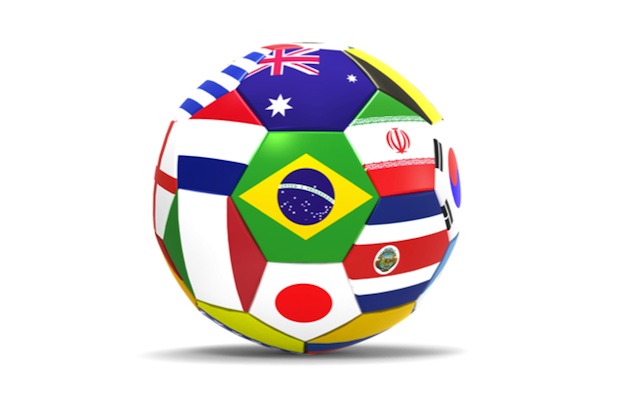Life lessons from the World Cup? Yup! Wisdom that will help you you live a better and happier life? You bet! Whether you are closely following the World Cup or not, you likely know of Germany’s semi-final round victory over Brazil this week. And while the United States is no longer competing, you may remember the headlines proclaiming that even though the US team lost to Germany, it was a loss that got them into the next round of competition! How does that work?!
It works because the first round of play at the World Cup is a “round robin” in which you play all the teams in your group, and how you do in all of those games cumulatively – both number of wins and overall goal count – effect your ability to advance to the “knockout round”.
So, because the United States only lost Germany by a score of 1-0, actually won a bunch of games early in the round, and the goal count in the Ghana vs Portugal game was low, Team USA advanced even as they lost Thursday to the Germans. And from these events at the World Cup, we learn the following four life lessons:
1. Sometimes you win, even when you lose, especially when you compete well.?Had the loss to Germany been a blow out, USA would likely not have advanced to the next round. Even though they lost, because they played well, they were able to advance. Don’t think that’s not a powerful life lesson!
2. Early victories have great pay offs down the road, especially when that road gets bumpy. Success is bankable. While previous successes do not guarantee future ones, they can never be “un-accomplished”, so whatever happens, they are always with you.
3. No single performance should define who we are or what our standing is – whether in a soccer competition or in life. It’s not that each “performance” in our lives doesn’t count, but we would all do better if we tried not to judge either ourselves or each other by any one of them.
4. Things are more inter-dependent than we often understand or remember. The goal count in the Ghana-Portugal game actually mattered when it came to determining whether or not USA would advance in the tournament.
So, whether it is events on another field or in another nation – even when its a game in which we aren’t playing – we are all far more connected that it may seem. Enjoy the rest of the Cup, or not, but definitely enjoy what happens as you work these four principles into your life.

Listed for many years in Newsweek as one of America’s “50 Most Influential Rabbis” and recognized as one of our nation’s leading “Preachers and Teachers,” by Beliefnet.com, Rabbi Brad Hirschfield serves as the President of Clal–The National Jewish Center for Learning and Leadership, a training institute, think tank, and resource center nurturing religious and intellectual pluralism within the Jewish community, and the wider world, preparing people to meet the biggest challenges we face in our increasingly polarized world.
An ordained Orthodox rabbi who studied for his PhD and taught at The Jewish Theological Seminary, he has also taught the University of Pennsylvania, where he directs an ongoing seminar, and American Jewish University. Rabbi Brad regularly teaches and consults for the US Army and United States Department of Defense, religious organizations — Jewish and Christian — including United Seminary (Methodist), Yeshivat Chovevei Torah (Modern Orthodox) Luther Seminary (Lutheran), and The Jewish Theological Seminary (Conservative) — civic organizations including No Labels, Odyssey Impact, and The Aspen Institute, numerous Jewish Federations, and a variety of communal and family foundations.
Hirschfield is the author and editor of numerous books, including You Don’t Have To Be Wrong For Me To Be Right: Finding Faith Without Fanaticism, writes a column for Religion News Service, and appears regularly on TV and radio in outlets ranging from The Washington Post to Fox News Channel. He is also the founder of the Stand and See Fellowship, which brings hundreds of Christian religious leaders to Israel, preparing them to address the increasing polarization around Middle East issues — and really all currently polarizing issues at home and abroad — with six words, “It’s more complicated than we know.”

